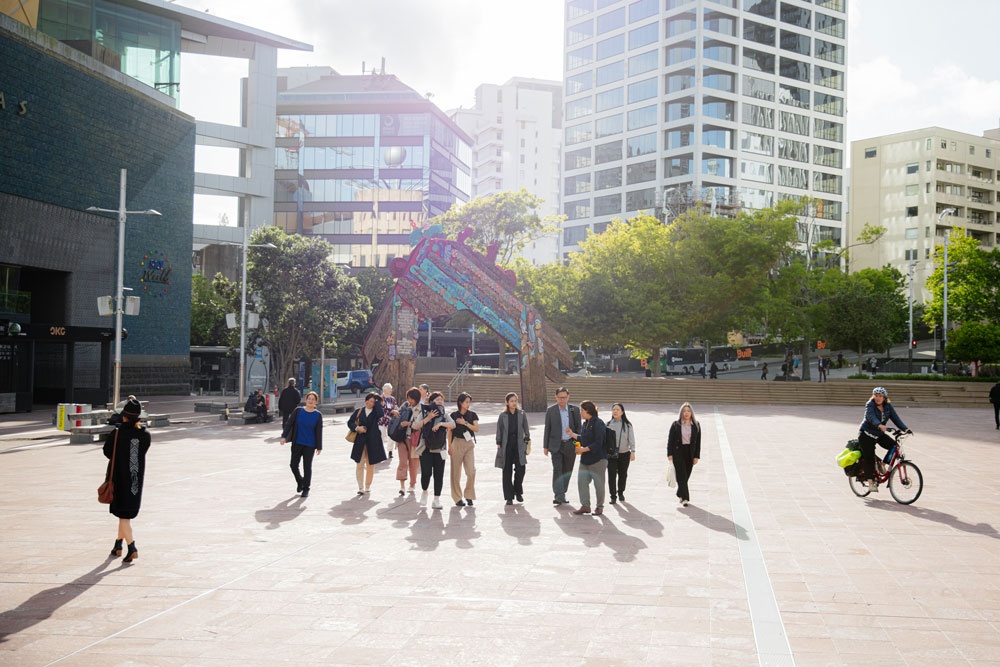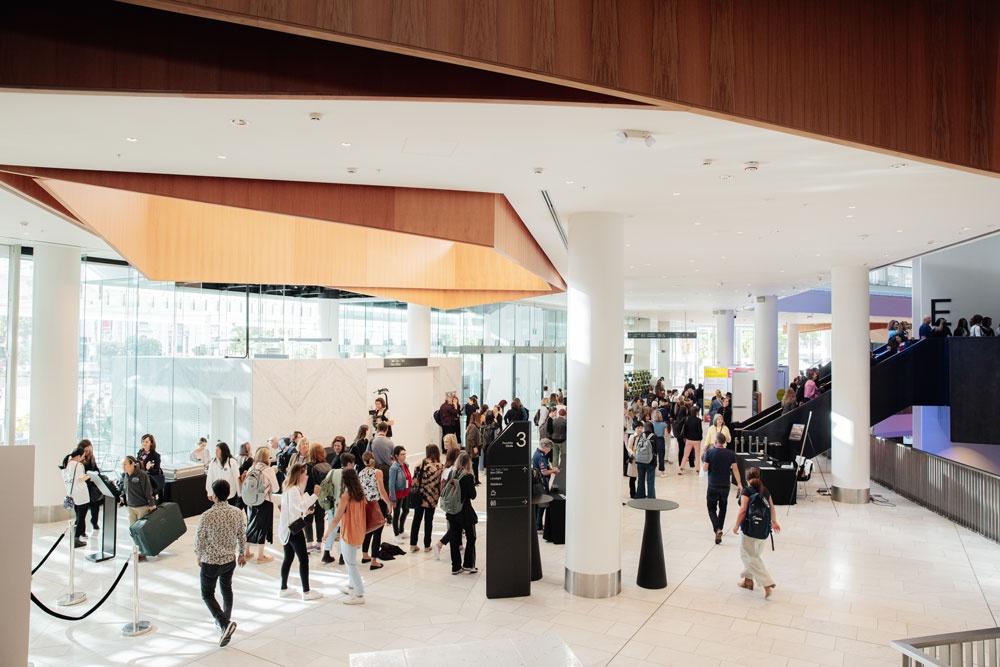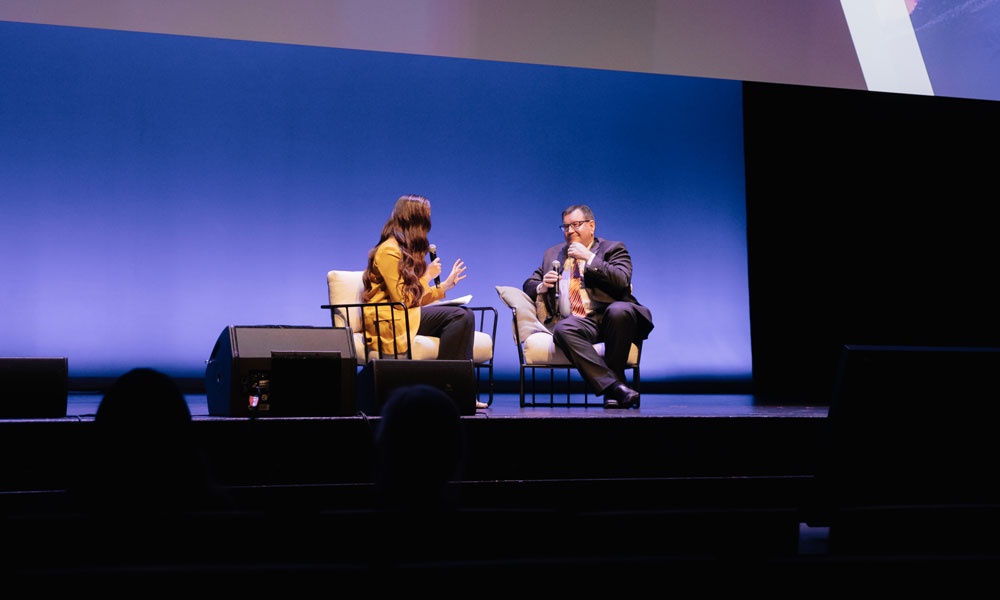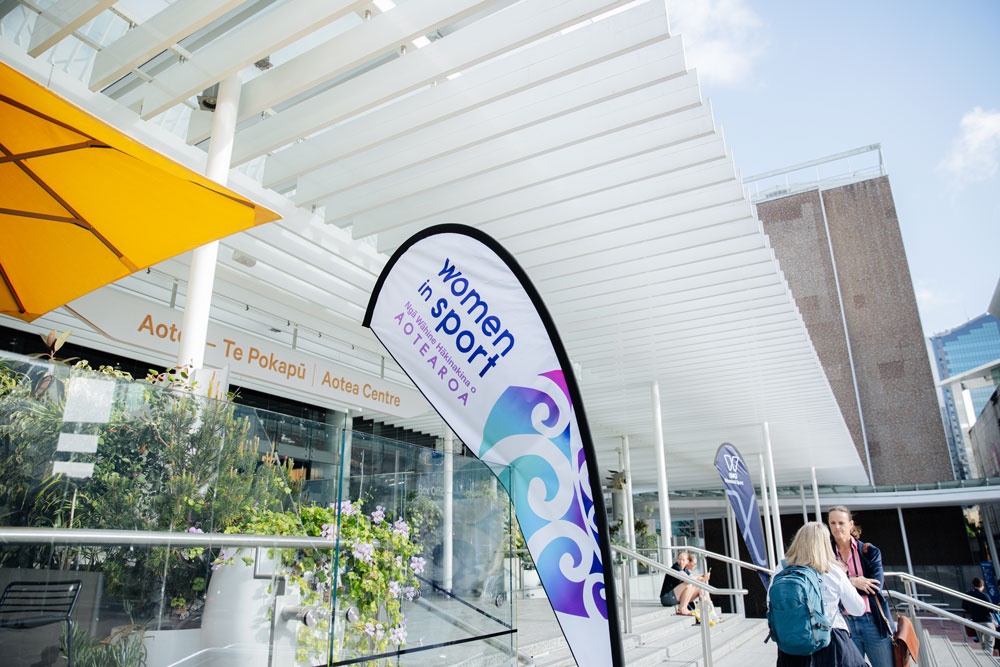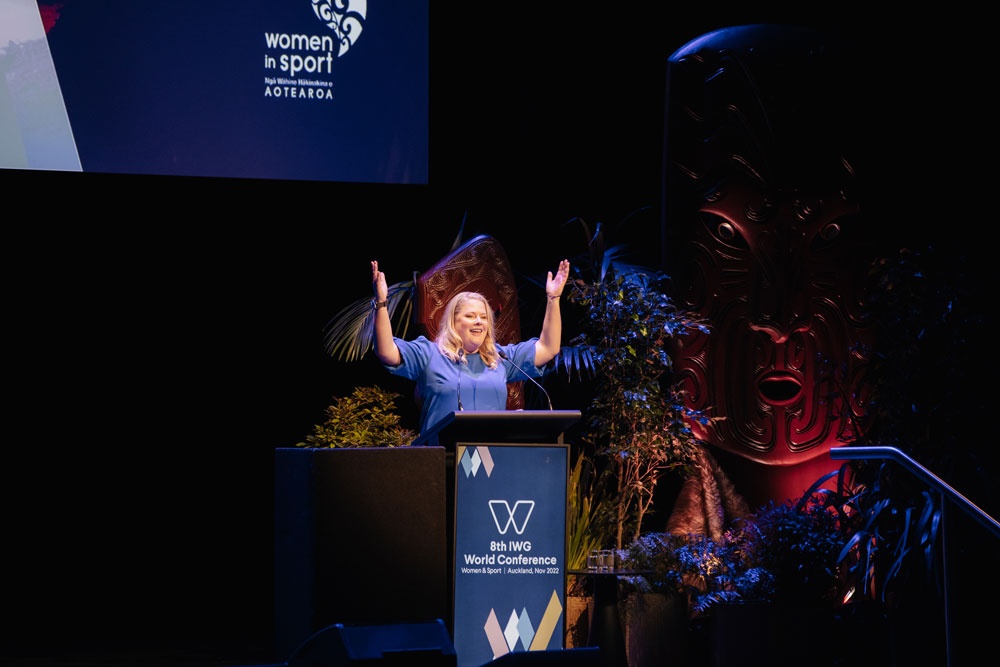Tāmaki Makaurau Auckland hosts the largest ever International Working Group (IWG), delivering an estimated 4,526 visitor nights and $1.64 million boost to the visitor economy.
Where: Te Pokapū Aotea Centre
When: 14-17 November 2022
Who: 1850 delegates from 90 countries; 79% hybrid/in person; 21% virtual
Tāmaki Makaurau Auckland hosted an incredibly successful 8th IWG World Conference On Women & Sport, attracting 1850 participants – the largest ever IWG event – and shining a spotlight on youth and Indigenous voices.
Held at Te Pokapū Aotea Centre in Auckland’s central city, the conference incorporated more than 50 global speakers, over 220 workshops and talks, online fitness classes, local adventures and an off-site indigenous event. Voices at the table were diverse, from the Saudi Olympic committee, World Rugby, to male allies; IOC member Prince Faisal bin Hussein of Jordan, New Zealand athlete Dame Valerie Adams, and the youngest ever IWG speaker, 17-year-old Maia Mariner.
Dubbed “the fourth Women’s World Cup event” the IWG World Conference capitalised on a wave of popular attention on women’s sport in New Zealand. Auckland has played host to games in the ICC Women's Cricket World Cup in 2022; the hugely successful 2022 Rugby World Cup - won by New Zealand women’s team the Black Ferns two nights before the conference in front of a record-breaking crowd at Auckland’s Eden Park; and the FIFA Women’s World Cup this year.
Nicky van den Bos, acting CEO of conference host Women in Sport Aotearoa, Ngā Wāhine Hākinakina o Aotearoa (WISPA) says: “Those three major events are great at doing the ‘see her be her’ work to drive awareness but beyond that the business end needs to stand up – the HOW. The IWG World Conference put a spotlight on what still needs to change – getting things like diversity in leadership, commercialising women’s sport and equitable facilities, on the radar.”
LEGACY PROJECT
The conference delivered an estimated 4,526 visitor nights and $1.64 million boost to the visitor economy for Auckland and New Zealand. But its legacy extended far further, bringing global expertise to New Zealand and the potential to build collaborations for IWG’s goal of advancing gender equity and equality in sports and physical recreation for women and girls.
As part of its legacy project, WISPA has gifted IWG the online Insight Hub developed during its secretariat. The one-stop shop is now a publicly held resource of free tools and information on issues ranging from women in governance to gender responsive guidelines for sport organisations.
As part of a longer-term impact plan, WISPA has also traced evidence of change through a pre and post conference survey on Gender Equity. Findings included:
- 80% of respondents expanded their women and girls sport network as a result of attending the event
- 93% were most likely or highly likely to implement positive change
- 46% of respondents already have a Gender Equity Policy. A further 30% intend to develop one as a result of attending the event
- 99% now believe sport and recreation can be used as a tool to achieve positive outcome for women and girls
In all, the conference concluded with 10 Conference Calls to Action, and 16 Indigenous Calls to Action, encouraging attendees to continue to drive sustainable, systemic change.
Head of Auckland Convention Bureau Ken Pereira says: “Tāmaki Makaurau Auckland hosted some extraordinary, record-breaking women's events in 2022 that have advanced both the profile and audience for women's rugby union and cricket and will continue to do so in 2023 for football. The IWG Women and Sport Conference played an integral role in reinforcing and reinvigorating the push for equity in sports and recreation. These events brought vibrancy, visitors and economic benefits to Auckland but beyond that, they leave a long term and positive legacy for women and girls in sport, both in New Zealand and globally.”
EQUITY OF VOICES
Indigeneity was a strong focus of the proudly bi-lingual conference. Through WISPA’s advisory rōpū (group) He Wāhine Toa Kei Te Kokiri, along with Ngati Whātua Ōrākei as host iwi, organisers were shepherded through the best way to integrate Māori values, content and culture into proceedings: from the opening traditional pōwhiri welcome, to the poi and waiata (song) in the programme activities, the speakers on stage, to the closing ceremony passing over of the mauri (life force) stone – Te Hā o Hine (female essence) to the next hosts.
The first Indigenous-focused initiative in IWG’s 29-year history took place at the Auckland event, with a First Nations Workshop held at Ōrākei Marae attracting 115 participants from 19 countries to provide a voice for Indigenous perspectives.
As well as a focus on incorporating youth voices in the speaker line up, WISPA gave 76 scholarships to young leaders and Māori Kōhine (girls) to attend the conference, to empower the next generation of New Zealanders.
ACCESSIBILITY
Having already been postponed once due to the Covid-19 pandemic, organisers delivered the 2022 event with in-person, hybrid, and full virtual options.
In addition, three in-person Pacific Hubs were set up in Fiji, Papua New Guinea and Samoa. Virtual conference content tailored to suit each audience was combined with a range of live local speakers and panel discussions, attracting 371 people and ensuring a Pacific regional voice and legacy for the event.
SUSTAINABILITY
Sustainable options were embedded in the conference planning, with virtual options and the Pacific Hubs providing a travel-free way to take part. For those attending in person, a unique partnership was established with New Zealand forestry firm John Turkington Forestry (JTL) which saw JTL calculating the air travel emissions of the conference’s international participants and delivering a native tree planting programme to neutralise the impact.
In addition, the conference operations were all run by members of environmental responsibility certifier Toitū Envirocare – venue Aotea Centre, regional body Tātaki Auckland Unlimited, PCO The Conference Company and caterer Urban Gourmet. Efforts were made across energy and water saving, waste reduction, and recycling.
WISPA’s van den Bos says: “It showed the NZ events scene the possibility of putting on a complex diverse event that reaches so many parts of a community and is as equitable and sustainable as it can be. We’ve since been approached by other traditional sporting conferences for advice on how to create interactive and engaging conferences.”
